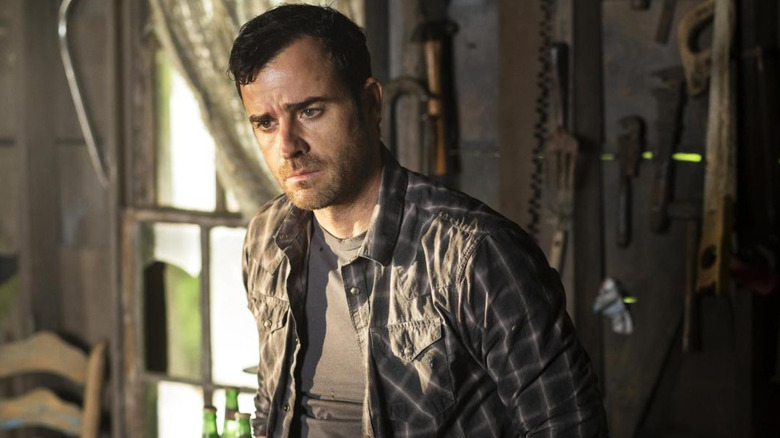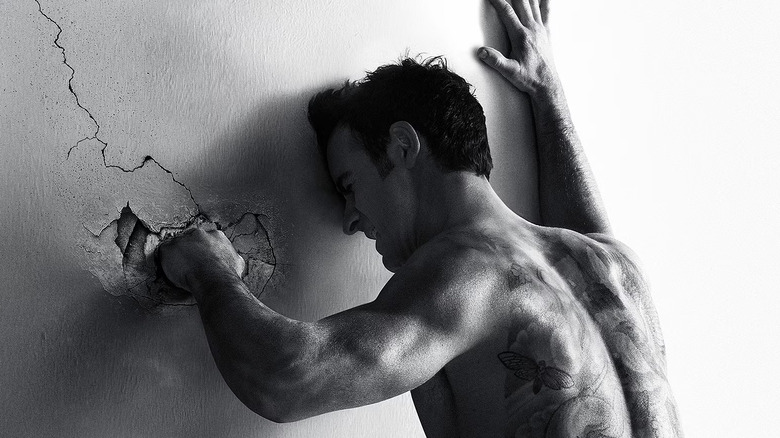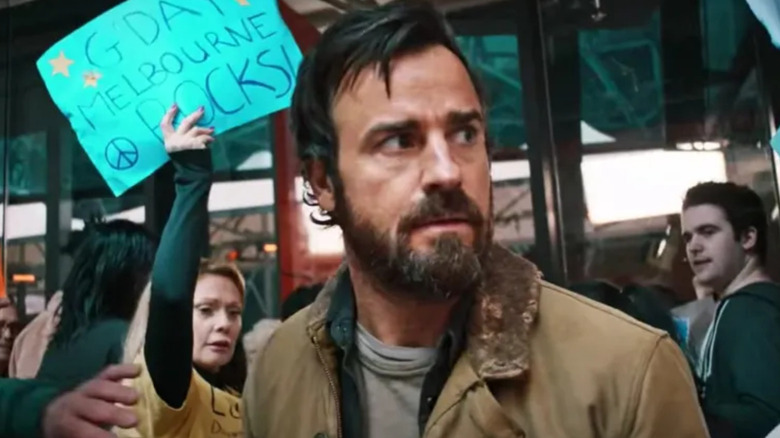The Leftovers Broke A Major Rule That HBO Followed For Decades
"The Leftovers" broke a major HBO rule that the channel had followed for decades upon its release. Damon Lindelof's beloved TV series was the first project developed outside of HBO's owned studios. Back in 2013, The Hollywood Reporter highlighted "The Leftovers" as a part of a massive push for new shows from HBO. Lindelof's show would stand alongside "Game of Thrones" and "True Blood" on the network. It's amazing to think of how much this move altered the "prestige TV" landscape.
Before that moment in 2013, HBO liked to keep the production of these series in-house. Warner Bros. Television would handle a lot of the duties. But to attract big fish, you have to loosen up the rules sometimes. "The Leftovers" had a who's who roster of producers at the time. Names like Peter Berg, Tom Perrotta, and Sarah Aubrey were hot commodities. If this is what it took to secure Lindelof (and his non-'twisty' show) after "LOST," you probably just make that decision and worry about the consequences later.
This deal had been brewing for a long time, though. Perrotta was aboard "The Leftovers" when it was picked up by HBO in 2011. From there, Lindelof caught wind of the book and immediately had his eyes on HBO. The filmmaker's existing pedigree led to a quick alliance, and things were off to the races. In this case, "The Leftovers" would go on to be critically acclaimed by audiences at home and still gets complimented by TV critics writing about the extremely different, binge-focused streaming landscape we have today!
What happens in The Leftovers? Why did HBO make this decision?
HBO is no stranger to high-concept TV shows that usually look like they cost a lot of money to make. "The Leftovers" is a gold star example of both of those tropes. In the show, a "Sudden Departure" whisks 140 million people without a trace. After three years, people in a small New York town try to grapple with the new normal. But, much like in our real world, it is hard to bridge the gap between the world before all those people disappeared and the one the characters currently inhabit. (There's a cult called the Guilty Remnant that springs up around some of the people left behind and everything!) "The Leftovers" ending remains very emotionally satisfying.
Tom Perrotta wrote the novel "The Leftovers" in 2011, but even today, the subject matter and situations can be very contemplative. All the best HBO "prestige-era" shows ask questions about our place in the universe, what we leave, and what we owe to each other. Those pursuits are worthwhile, but maybe a hard sell for a TV executive. In essence, teaming with 20th Century Studios to make a show like "The Leftovers" increased the chance of success for all the shows on the network.
Warner Bros. Discovery made a big change with HBO
Let me explain. 20th Century Studios handling that bit of the production means that Warner Bros. doesn't have to expend that energy or money. They just have to share the profits when it does well. You can afford the rare misfire or keep a show around that isn't the biggest thing on television when you spread the wealth around. This would go on to be a more commonplace move for HBO and other TV outfits during the previous decade. Why put all those eggs in one basket when you don't have to?
It's a lesson that all the streamers are seemingly learning again. Look at shows like "Abbott Elementary" that share their success between Warner Bros. Television and ABC Studios? When it does well, everyone gets their share of the pie. HBO kind of kicked off the high-concept show outside of their gates on "The Leftovers," and everyone was better for it. Viewers now might enjoy the same opportunity afforded to some smaller projects in the coming years. It's all key in helping maintain a healthy balance on TV screens everywhere.


